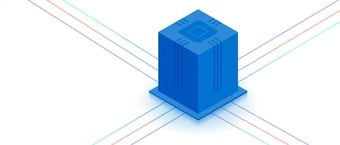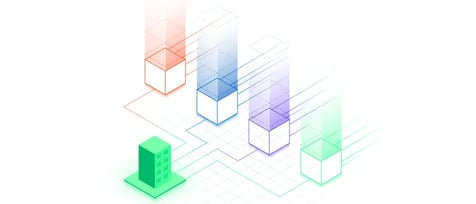
How Automation is the Precursor to AI in the Data Center
AI will be the foundation of the future digital data center in which the infrastructure is smart, and spaces are optimally managed together. As solution providers and equipment manufacturers better enable such machine learning and integration, automation is a precursor and critical step in the journey.
AI and Automation are Different
Although in early stages, the buzz around AI implies it’s already prevalent in data centers. Frequently, however, the terms AI and automation are interchanged. Yet, there’s a difference.
Anthony Hatzenbuehler, Senior Vice President Data Center Operations, CoreSite, explains, “Today, we find logic sequences leading to automation. What we see now are if/then scenarios based on human input. This is a big step towards full intelligence.”
Such automation is shifting data centers from reactive to preventative on the way to predictive. But for machines to learn, large volumes of data are needed first. That means the data center must be fully instrumented.
Joe Reele, Vice President, Datacenter Solution Architects, Schneider Electric, says, “AI will underpin the next-generation of what we think of now as DCIM, which will evolve into more of a data-center-as-a-service model. This smart software will integrate the grey and white space, people and processes resulting in a true digital data center.”
Ultimately, both Anthony and Joe believe that AI in the data center will result in lights-out operations. Although Joe emphasizes, “AI is the continuing evolution of technology to help humans find better ways to solve business problems. AI in and of itself won’t make those types of decisions.”
Filling The Data Center Data Gap
Data is essential to intelligence in the data center. CoreSite has a great deal of data from its own systems, according to Anthony, but he feels more data from partners is needed.
“Some manufacturers, like Schneider Electric, offer very advanced data and views into operating systems — UPSs, for example — and intelligence around batteries,” he says. “But, for the most part, OEM data is proprietary.”
Joe agrees. “Much more data is required to fulfill the promise of AI.” To that end, Schneider Electric is building a data lake. “Ours will be a no-name data lake, meaning that it will not include any sensitive or personal information,” says Joe. “There won’t be any command or control linked to the lake either. The data is gathered at a point in time (in the past) and compared to similar systems data. Over time, it will enable significant intelligence and predictive analysis of operations, risk and performance.”
The ROI of AI
Once data is flowing and readily available, a new level of intelligence will be attainable, and AI in the data center can do its job of finding trends, foreseeing imminent failures and informing better decisions.
“Scale will be critical here. For optimal benefits, the entire data center must be intelligent,” says Anthony, “which brings us back to the need for holistic data.”
The ROI of AI will be realized when the machine itself dictates maintenance and schedules accordingly. Herein lies the opportunity to remove the human factor, freeing up people to do the work they excel at, such as creating strategies.
Automation is Here; AI Awaits Demand
In the colocation industry, customers are already benefitting from automation as they “rightly so” focus on table stakes, according to Anthony. "This equates to uptime, security, staffing and costs. The logic and automation I mentioned earlier are making a difference in these areas.”
AI does not yet appear in colocation RFPs, he says. “It’s still viewed as experimental, and customers don’t want to be test cases. They're skeptical of a dark operation. We get more questions around having the data center appropriately manned so a human can be alarmed versus removing the human element because of AI.”
Joe concurs. “This is a crawl, walk, run scenario. As the data leads to improvements in efficiencies, cost and risk, we’ll see skepticism decrease. In the context of a car, it’s akin to driver-assist getting more sophisticated on the way to a fully autonomous vehicle without steering wheels.”
AI as a Differentiator
In the longer term, colocation providers will benefit from AI. It could become a key differentiator as they try to decrease time to market and shrink energy use to unprecedented levels.
“In the meantime, our customers already expect — and we deliver — complete uptime,” Anthony says. “They know our PUE is optimal, and power rates are economical, but there’s always room for improvement. That’s why AI is so promising.”
AI sees what humans cannot and mitigates the one thing they can’t help: errors. AI can quickly identify patterns and perform mundane work without slip-ups — which can happen with even the most well-trained and prepared professionals.
“Then people can be redeployed or retrained to do more strategic work — improvements, and innovation that will ultimately benefit the customer,” he says. “That’s when AI will impact our business and our customers — when it lowers the cost of our operation, and we can pass the savings on.”
Joe says that Schneider Electric customers will be a catalyst for innovation in this area. “As their businesses move forward, we’ll move with them. In some cases, AI is already helping shape their futures. We are learning from pilots and building from there. The initiatives will evolve and become more robust. Then, even more automation will be baked in.”










